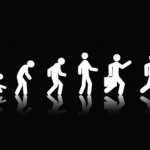Have you ever wondered what makes you choose a product from others? How do we decide between all the options that are presented to us on a daily basis?

What really makes you choose one toothpaste from another? The answer lies in the type of words used when selling the product or service.
Maybe you had never noticed, but words play an important role when making a decision. Below we show you the 10 words that your client “needs” to listen to when making a purchase decision.
-
Free
If you think the word “free” is very used, think again. People like the free and the simple. Think about it, you can give anything without cost and you will get the attention of the people. Gregory Ciotti of Help Scout states in a study that 73% of the people who were given a choice between a Lindt truffle for $ 0.15 and a Hershey’s Kiss chocolate for $ 0.01 decided on the truffle. Afterwards, they would prefer if the truffle were kept at the same price (0.15) and the Kiss was free. 69% changed their mind and chose Hershey’s chocolate.
-
Exclusive
Everyone always wants to “belong”. When you make your product exclusively for a select group you will make people want it even more. You can use synonyms as it is: only members with invitation.
-
Easy
If you had the opportunity to participate in surveys, where will you be? What are the main factors when choosing a product, you will have noticed that “easy to use” is within the top 10. This does not mean that the product should not have some complexity, but yes, never before the simplicity.
-
Limited
How we hate to miss something. It can be from a “bobble head” in a baseball game in which they assure that “only the first 100 people can have one of these figures for free”. And I say, what’s the use of a “bobble head”? Well, what does it matter? It’s a big business and you have to make a quick decision before it’s too late, right?
-
Get
Encyclopedia Brittanica changed the titles of a test made by HubSpot by adding the word “get” and this change resulted in twice as many conversations. We do not have an explanation for this, but we could say that “get” is a word that takes action with that and that psychologically puts the reader aware and prepares to do something, in addition, this word is a benefit.
“Get a flat stomach in six weeks.” “Get better grades without so much study.” You can use other verbs as they are: start, try, give.
-
Guaranteed
With so much fraud in the world, authenticity is something that all customers seek. Using the right words can give them the security they need to access the purchase. If your product does not have a guarantee, do not say yes it does because even if it works at the beginning then the buyer will demand a refund. Other words you can use instead of that is: it does not cause harm, it is safe and so on.
-
You
When you are writing to sales record or anything that you seek to persuade, use the language in the first person. That will make your text feel more like a conversation.
-
Because / for
Gregory Ciotti uses interesting scenarios in the book Influence by Robert Cialdini. One of them talks about how different phrases were tested to see which one worked best when it came to getting people to let you get in line to get copies.
Option 1: “Excuse me, I have five sheets, can I use the Xerox copier? 60% allowed it to take its place.
Option 2: “I have five sheets, can I use the Xerox copier because I’m in a hurry?” 90% agreed to get in line.
Option 3: “Sorry I have five sheets, would you give me permission to use the Xerox machine to make copies? 93% agreed to use their place.
Notice how to use simple “because” or “for” made almost everyone let the person get in line. Also, the reasons were not even interesting, “why do I have to make copies?” Everyone in line had to do it! Remember that human brains love explanations.
Make your product have to do with a reason, so people will take action faster.
-
The best
What sounds better “How to change a shirt” or “The best way to change a shirt”? It is not so difficult. Think of the times you’ve googled something. To avoid feeling frustrated during the search you decide to put “the best, or the most” so that you get the “best option” faster. We know that maybe the product or service is not going to be the best, but the simple fact of saying that it is makes us think that there was already a comparison with something else.
-
Compare
With social networks you can make comparisons before making any decision. Buyers want to know who the “strongest” products are and then try them. Use this advantage to tell readers to compare you or better yet, do it by yourself.
When you openly demonstrate the difference between your product and the others, you are facilitating the purchase from the customer.














